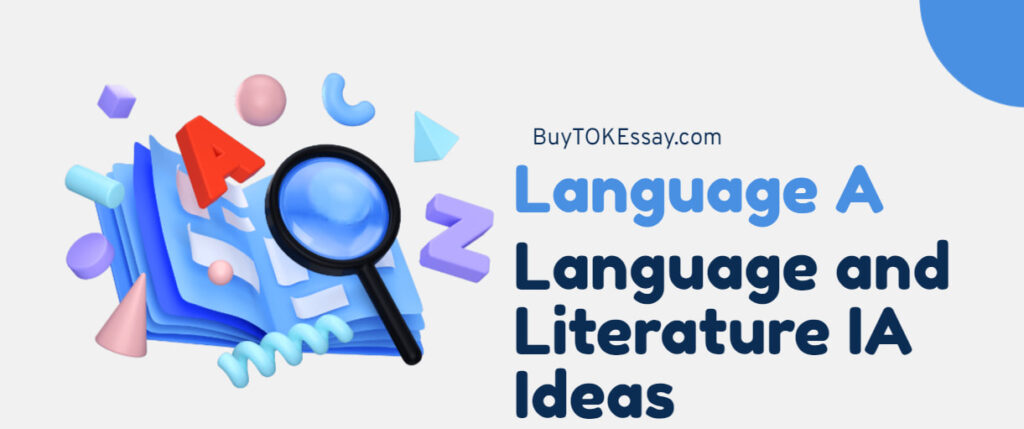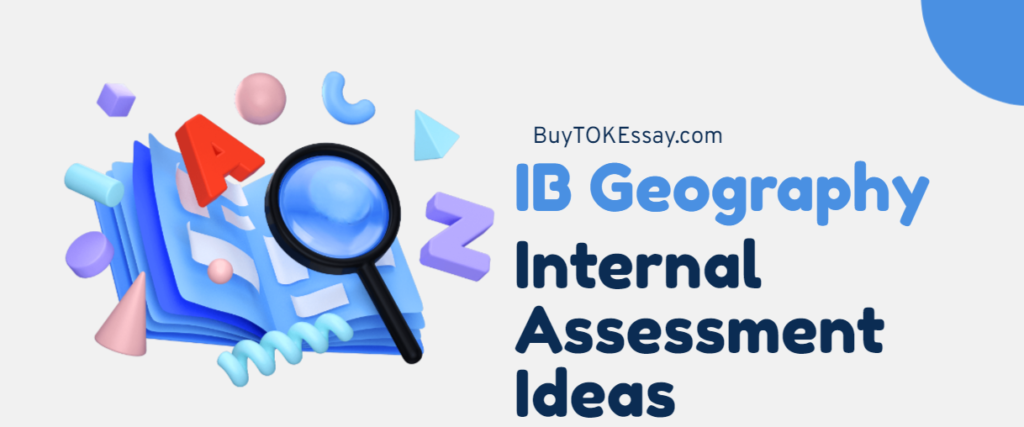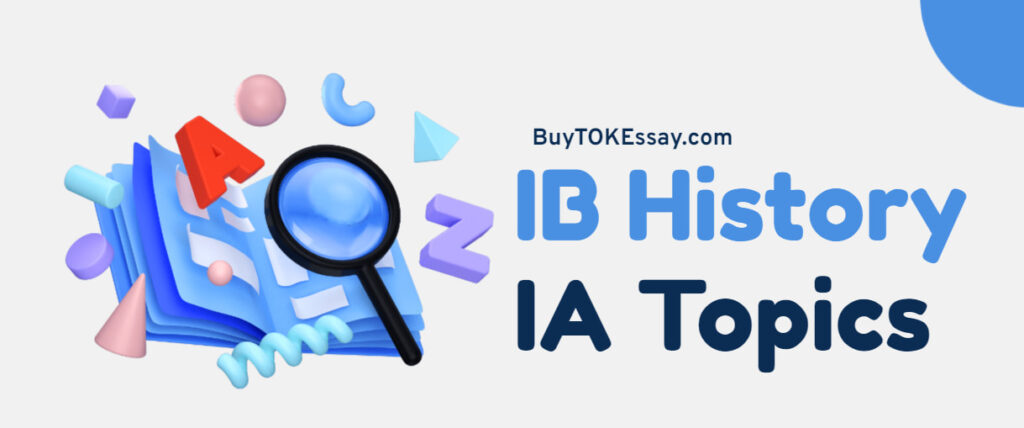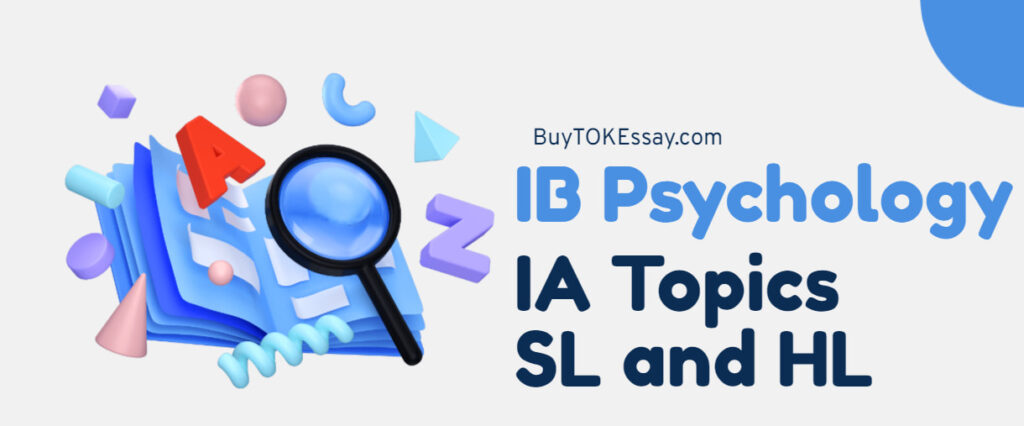The right topic for your IB Internal Assessment may make or break your project. Research becomes more interesting, writing becomes more organized, and grades improve with a well-chosen topic. However, choosing a bad topic might make the process burdensome and frustrating.
You’re not alone if you’re struggling with a topic. This phase is difficult for many students, but if you do it right, you may choose a subject that will keep you interested in addition to fulfilling IB standards. So, I will tell you how to choose the right topic for your IB Internal Assessment and avoid typical blunders.
- What Is the IB Internal Assessment?
- What Is the Importance of Choosing an Internal Assessment Topic?
- How to Choose the Right Topic for Your IB Internal Assessment?
- 1. Find a Topic with a Specific Research Question
- 2. Verify That Your Subject Permits Critical Analysis
- 3. Steer Clear of Too Complicated Topics
- 4. Take Into Account Your Research Time
- 5. Consider How Your Topic Connects to Current Events
- 6. Verify Your Topic Is Appropriate and Ethical
- 7. Be Adaptable—Your Topic May Need Improvement
- Need Help with Your IB Internal Assessment?
- Brainstorming Strategies for IB Internal Assessment Topics
What Is the IB Internal Assessment?
Every IB student must finish an Internal Assessment for each subject they are enrolled in. At the same time, the specific criteria vary significantly from subject to subject. Still, the fundamentals are always the same—independent research, data analysis, and a well-organized written report. It is intended to evaluate your capacity to develop a research question, collect and evaluate data, and draw logical conclusions.
The Internal Assessment gives you more time to show off your research, analytical, and writing abilities than conventional examinations, which evaluate your memory of material under time pressure.
For instance, you could be expected to research a historical event or evaluate original materials as part of your IB History. The IA in IB Biology may include conducting an experiment and evaluating the results. Economics Internal Assessments often apply theoretical ideas to real-world scenarios via case studies. Your IA is a chance to take charge of your education and work on a project that interests you, regardless of the subject.
Most Internal Assessments are between 1,500 and 2,500 words, while IB does not have a rigid word restriction for all subjects. However, the subject determines the precise requirement:
- Sciences (Biology, Chemistry, Physics) are around 1,500–2,250 words.
- Mathematics is around 6–12 pages (word count varies).
- History is around 2,000 words.
- Economics and Business Management are 1,500–2,000 words.
- Psychology is around 2,000 words.
- English Language and Literature is around 1,500 words.
Although footnotes, references, and appendices are not included in the word limit for IB, lengthy written reports for Internal Assessments may be penalized for being too wordy.
What Is the Importance of Choosing an Internal Assessment Topic?
Based on my experience, students’ most often occurring error is selecting a topic too hastily without thinking if it is doable. Because they believe that they will have more material to work with, many students choose broad or imprecise topics. Unfocused research and inadequate data analysis are often the results of a topic that is too wide. On the other hand, choosing a topic that is too limited might make it challenging to locate reliable references or statistics to back up your claims.
The next factor is your motivation. You can have trouble keeping interested if you choose a topic just because it appears simple or someone else suggested it. Writing an IA takes weeks. Therefore, selecting a topic that interests you might make a big difference. I’ve seen that students who choose topics based on personal curiosity are more interested and productive and get better grades.
Your topic also influences the quality of your work. A well-defined, researchable topic lets you build a compelling case, provide unambiguous data, and arrive at perceptive conclusions. If your topic is too broad, your written report may be descriptive rather than analytical, affecting your score.
IB examiners are searching for originality and depth of knowledge. Having a different viewpoint on a topic might help your IA stand out, even if you don’t have to come up with anything original. In subjects like History, IB Economics, and Psychology, topics are constantly repeated, which is especially crucial. A well-considered research question with a different viewpoint will make your work more enjoyable and significantly impact the examiner.

How to Choose the Right Topic for Your IB Internal Assessment?
My top recommendations for selecting the right topic for your IB Internal Assessment will help you make the best decision.
1. Find a Topic with a Specific Research Question
Many students begin with a broad concept but cannot refine it into a specific research question. You should pose a precise, targeted question about your topic that you can research and respond to in the allotted word count. Your written report may appear haphazard and superficial if the topic is unclear.
For instance, ” The impact of climate change“ is very broad. The precise and quantifiable question is, “How has climate change affected agricultural productivity in Northern Italy?”
Before committing, reconsider your topic if you have trouble formulating a good research question.
2. Verify That Your Subject Permits Critical Analysis
An Internal Assessment must show critical thinking, analysis, and data summation. Although specific topics may appear intriguing, they don’t provide much opportunity for analysis or debate.
For example, a History IA that only recounts events without evaluating their causes, effects, or viewpoints would get a low grade. In a similar vein, a scientific IA that only displays experimental findings without explaining would be shallow. Instead of merely presenting facts, choose a topic that enables you to ask questions, assess the information, and interpret it.
3. Steer Clear of Too Complicated Topics
Avoid picking a topic that is overly technical or requires knowledge beyond your ability, even if uniqueness is crucial. Your IA may become overpowering if the topic includes complex mathematical models, complicated statistics, or unreachable scientific facts.
My experience has shown that students who choose extremely complicated topics often struggle to articulate ideas properly, which lowers their analytical and clarity scores. Instead, find an issue that pushes you while staying within a reasonable range of difficulty.
4. Take Into Account Your Research Time
Even with a fantastic topic, enough time is still required for thorough research and analysis. Some students choose research topics that require weeks-long experiments, archives access, or long-term data collection. A topic that needs a lot of fieldwork or experimentation may not be feasible if you just have a few weeks.
Before making your final decision, consider gathering and analyzing the required data within the IB timetable. If not, shift your attention to something more realistic.
5. Consider How Your Topic Connects to Current Events
Examiners value topics that link theory to practical applications. Your Internal Assessment might be more interesting and powerful if your topic concerns current affairs, social concerns, or actual case studies.
For instance, in economics, you may look at how inflation affects small companies in your nation rather than just evaluating a theoretical idea. You may investigate how social media affects teens’ decision-making in psychology somewhat of writing about broad cognitive biases.
A real-world link gives your Internal Assessment greater significance and usually offers better data for study.
6. Verify Your Topic Is Appropriate and Ethical
Avoid contentious or morally delicate topics that could go against IB regulations, even if originality is encouraged. Your instructor or IB examiner may not accept some issues, such as overtly political subjects, human experimentation, or unethical data collecting.
For instance, without ethical clearance, live animal experimentation is prohibited in Biology IA. Without the proper ethical considerations, researching traumatic events or delicate mental health topics may be hazardous in psychology. Before continuing, ask your instructor if you are unsure.
7. Be Adaptable—Your Topic May Need Improvement
You may need to modify your topic as you do research, even if you have a brilliant concept at first. Many students discover halfway through that their topic is too complicated, has insufficient information, or doesn’t fit the IB requirements.
That is totally normal! The best way to do it is to start with a broad view and narrow it down as you go. Don’t be afraid to change how you research if you’re having trouble. It’s better than pushing a weak topic.

Need Help with Your IB Internal Assessment?
Reach your full ability and improve your IB IA scores with our help. The BuyTOKEssay.com team can help you write an excellent paper from scratch or tweak your current project to match your supervisor’s requirements.
You can buy an Internal Assessment that fits your needs with just one click.
Brainstorming Strategies for IB Internal Assessment Topics
Picking a topic for your IB Internal Assessment can be tricky, but coming up with ideas in a planned way can help a lot. Try these things if you’re having trouble coming up with thoughts.
Mind Mapping
As previously mentioned, you may begin with a general subject area in the middle of a page and create branches to possible subtopics. For instance, in your Economics IA, you might start with “Market structures” and work your way up to “Monopoly pricing,” “Competition in local markets,” or “Government regulation.” This technique helps visualize connections and focus a broad concept into a more specific one.
Personal Reflection
Consider topics that have really piqued your attention in class. Was there a lesson that piqued your interest? Have you been inspired to study more after seeing a documentary or reading a book? Writing on a subject that already interests you will be a lot simpler.
Looking at Past IB Examples
You may get ideas and a better idea of what constitutes a solid topic by going over past IB Internal Assessments. However, rather than stealing an idea, look for a different perspective on a related subject.
Current Events and Real-World Issues
Global trends, current discussions, and the latest news may all be great places to start. For instance, if you’re studying Psychology, you may examine the psychological effects of online learning after the pandemic or how social media influences attention span.
Conclusion
The best IB Internal Assessment topics are those that are interesting to you, have enough research material, and meet the standards of the IB subject. Your IA can feel more like a chance to learn about something interesting than just another task to get through if you plan and make choices with care.
When students try to choose the right topic, the process is more fun, and the projects get better grades. Also, our service is always by your side when you need TOK and Internal Assessment help. We will guide you in refining your research question and providing a practical framework if you feel stuck or uncertain about your topic. Avoiding typical mistakes and last-minute stress is sometimes possible with the help of an expert’s opinion.





